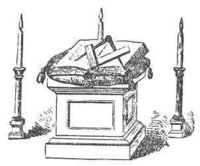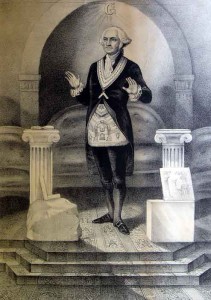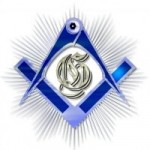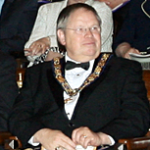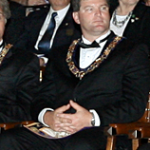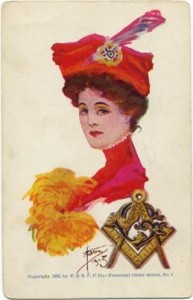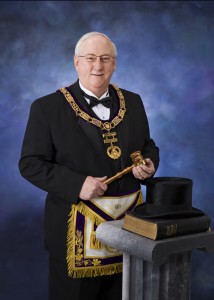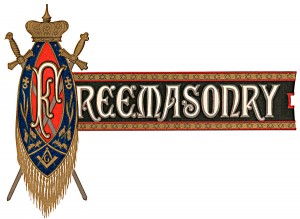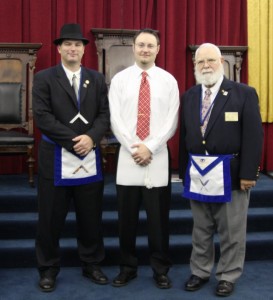Posted By Admin on February 11, 2011
Article by
Don Hensiak, Senior Grand Steward
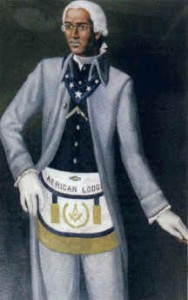
Prince Hall
The Grand Lodge of Wisconsin has enjoyed a growing relationship with the Prince Hall Grand Lodge of Wisconsin. The two Grand Lodges remain separate and distinct, but have enjoyed mutual recognition since 1990. This allows the two jurisdictions to enjoy camaraderie and visitations. The Grand Lodge of Wisconsin currently recognizes 31 Prince Hall Grand Lodges throughout America.
Many Masons have labored under the mistaken idea that Prince Hall is a “black” lodge and that other jurisdictions are “white” lodges. This has never been the basis for either jurisdiction’s memberships, but even in Masonry racial prejudices have died slowly. Historically, many military lodges have been chartered under the Prince Hall banner.
Tracing its roots to the “Mother Lodge” in England, the Most Worshipful Prince Hall Grand Lodge began its Masonic journey with the Warrant of Constitution issued to African Lodge No. 459 on September 29, 1784. The warrant was signed and sealed under the authority of His Royal HighnessHenry Frederick, Duke of Cumberland and Grand Master. The actual charter is still in existence in a safe deposit box in Boston. It is the only original charter issued from the Grand Lodge of England that exists in the United States.
Prince Hall was a leather-worker, soldier, civic leader, caterer, educator, property owner and abolitionist. He fought for the education of black children and the protection of free blacks from being kidnapped and sold into slavery. A black man, he was born in 1735. He was reportedly born in Africa or Barbados and brought to North America as a slave. The details of his birth and early years are sketchy at best. Documents show that slave owner William Hall freed a man named Prince Hall on April 9, 1765, but there were evidently several men named Prince Hall living in Boston at the time. It appears that many stories of Prince Hall’s early years were embellished. In particular, there was an effort by some authors to create a “freeborn” birth for him to “legitimize” his Masonic standing. Some Grand Lodges relied on the “freeborn” terminology in our ritual as an excuse to deny the legitimacy of black Masons. Masonic scholars today tend to agree that the exercise of “free will” is what is of primary importance to a man who petitions a Masonic lodge.
Prince Hall had been raised to the degree of Master Mason in Military Lodge No. 441 which was a racially integrated lodge attached to the British Army at Boston. Hall and fourteen other men were initiated, passed and raised on March 6, 1775 at Castle William, Boston Harbor (later called Fort Independence). A year later, in 1776 the black Masons were granted limited dispensation to operate as African Lodge No. 1 with Prince Hall serving as Worshipful Master. This limited dispensation allowed them to meet, observe St. John’s Day and to bury their dead, but not to confer degrees.
After the British left Boston Harbor in 1776, Prince Hall and many of his brethren joined the Continental Army and fought on the side of the revolutionaries. There is evidence that Hall may have fought at Bunker Hill. African Lodge survived the war and listed 33 men on its rolls after the war. Freemasonry in America however, was in turmoil after the war. The Grand Lodges of England, Scotland or Ireland had chartered most of the lodges in America. The new states decided to form their own Grand Lodges and African Lodge attempted to gain recognition from the Provincial Grand Lodge of Massachusetts and others, but was rejected. The Premier Grand Lodge of England eventually granted them a charter in 1784 as African Lodge No. 459. It is uncertain whether the Grand Master of England (who was also the brother of King George) granted the charter out of brotherly love, or as an opportunity to “embarrass” the white Americans by chartering a black lodge on American soil.
Due to the lack of good communication in those days, and Grand Lodges that were not strong, it was not unusual for individual lodges to charter other lodges. Under the authority of its English charter, African Lodge chartered lodges of black Masons in Pennsylvania and Rhode Island. Records of the Grand Lodge of England show that African Lodge made payments to the English Grand Lodge’s Charity Fund for a number of years. In 1792 when England re-numbered its lodges, African Lodge was advanced to No. 370 indicating that the Grand Lodge still recognized them at that time. It appears that the lodge may have never been aware of this change due to the lack of communication. In 1813 the “Antient” and “Modern” Lodges of England united into what is now the current Grand Lodge of England, and African Lodge as well as all other lodges in America, were erased from the English Registry.
African Lodge considered itself part of the Grand Lodge of England until 1827 when due to continued silence from England, they took the action of declaring themselves to be independent of any other Masonic authority. Along with the two lodges that African Lodge had chartered, they eventually changed the name of the Grand Lodge to honor Prince Hall, their founder, who had died in 1807.
Prince Hall Lodges have existed in Wisconsin since 1878 when Brown Lodge No. 25, which would later become Widow’s Son Lodge No. 1, was organized in Milwaukee. Originally operating under the Grand Lodge of Prince Hall Masons from Illinois, the Prince Hall Masons of Wisconsin received its own Grand Lodge Charter on June 25, 1925.
Sources
- Grand Lodge of Wisconsin Masonic Handbook
- Freemasons for Dummies – Christopher Hodapp
- Idiot’s Guide to Freemasonry – S. Brent Morris
Category: Message from the East |
No Comments »
Tags:
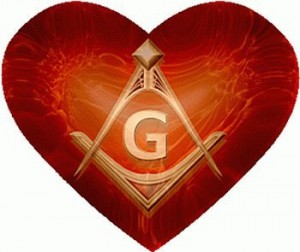 We still have tickets for our Annual Gun Raffle. If anyone is interested, please let us know.
We still have tickets for our Annual Gun Raffle. If anyone is interested, please let us know.